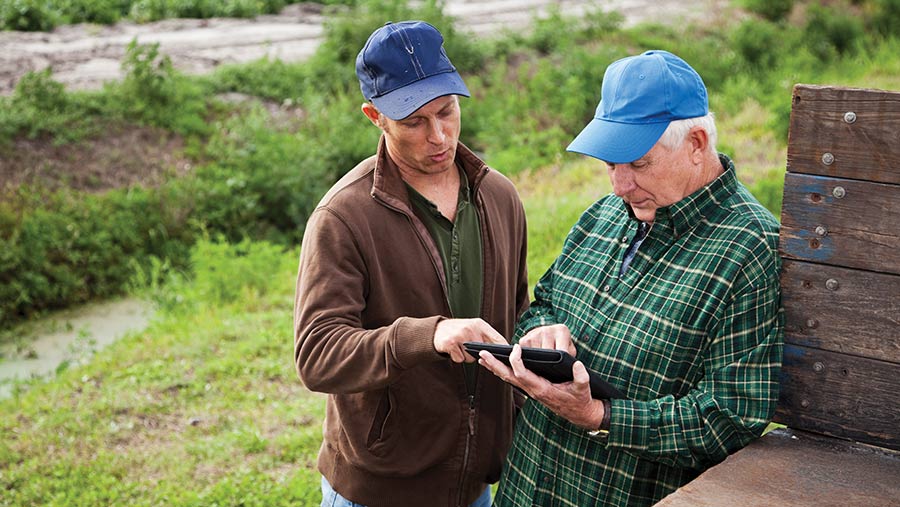Making a will: What farmers should consider
 © Anton Prado/Adobe Stock
© Anton Prado/Adobe Stock Failure to make a will means that, on death, the law of intestacy kicks in to determine how assets in an estate will be distributed, which is often not in the way that the individual might have wished.
The reasons for not making a will are many.
Perhaps the most common is that it is simply something people “will get around to”, or they are under the mistaken belief that if they are married or in a civil partnership, all will pass to their spouse or civil partner.
See also: How can a will be challenged?
Further reasons include an objection to paying professional fees – but the value of farming and other property assets has grown so much that this is a poor excuse, says Gary Markham, director of accountant and adviser Land Family Business.
He suggests a competent will in most family farming situations is likely to cost in the region of £750.
“Although many people don’t like to contemplate making their will, it really isn’t as difficult as you think and you don’t have to decide everything there and then,” he says.
He sets out some fundamental points to consider:
Wills, partnership agreements and accounts
Wills are not standalone documents for farmers who are in business and own assets such as land and property.
They are often linked to partnership agreements and, unless it is specified to the contrary, a partnership agreement overrides the terms of a will.
Many farming families still do not have a written partnership agreement. Where this is the case and one of the partners dies, the provisions of the Partnership Act 1890 take effect.
This gives equal ownership shares of partnership assets, no matter what a will may say.
Land and property may be held within a partnership or outside it, often by an individual who is a member of the partnership.
The accounts are signed off by the partners annually and should show ownership of the assets, but may not always be transparent, says Gary.
“Ideally the accounts should contain details of any ownership through a land capital account schedule,” he advises.
“I have seen family fallouts over the terminology used in wills being at odds with the terminology in annual accounts and partnership agreements. This can lead to wills being challenged and more stress and costs for families.”
Will challenges often arise where there are fairly poor family relationships to start with.
“To get to a clear position, in addition to the will, things should be set out clearly in a land capital account, alongside a partnership capital account and a current account.”
Land ownership
“You can’t give in a will what you don’t own. A common assumption is that if land is registered in a person’s name they are the owner, but this is not necessarily the case.
“There is a difference between legal title and beneficial ownership.
“Something can be a partnership asset even if the title is registered in an individual’s name.
Land and other assets are often held by an individual in trust for the partners who are more often than not the beneficial owners, which means they benefit from the use of the asset.
However, a farming partnership is not a legal entity, so cannot hold title to property.
“Where there is no written agreement setting out partnership shares, then on the death of a partner, it’s back to the Partnership Act 1890, which divides that ownership equally between the partners.”
Protection of assets

© kali9/Adobe Stock
Life interest can be used to protect assets within families, Gary advises.
“We often use this to protect against the farm going out of the family. This can happen, for example, if an owner leaves the family farm to their spouse absolutely and unfortunately dies fairly young.
“The widow or widower may then re-marry and subsequently leave the farm to their new spouse.
“Alternatively, the farm could be left as a life interest to the original spouse and then absolutely to the children, or other family members if no children. This keeps the farm in the family.”
A solution to indecision
Farming parents often find it impossible to conclude who will be entitled to what in the terms of their will.
“This is quite understandable. and things change over time, so the easiest decision is to leave it for another day. However, there is an answer to this, which we advise all of our clients to do,” says Gary.
This is to leave all assets in a will in a will trust, listing all possible future beneficiaries. This is an easy step and the will can then often be a will for the rest of the person’s life, subject to reviews on life events such as marriage.
Accompanying this should be a letter to the executors or trustees of the estate stating who is to have what assets.
This is called a letter of wishes and could be joint between husband and wife, or separate letters, depending on the circumstances.
“The good thing about this is it can be updated, signed and dated at any time at home and a copy sent to the solicitors and accountants.”
Joint tenants or tenants in common
Where a husband and wife (or civil partners) own a property jointly, they may be joint tenants or tenants in common. Legally, and for inheritance purposes, there is a big difference.
In the case of joint tenants, ownership can only pass from one of those joint tenants to the other.
When property is owned by tenants in common, then one tenant’s share can be split away from that of the other tenant and gifted in a will or during lifetime.
“I’m coming across this as an issue more and more, in that someone who is a joint tenant will believe they have left their ‘share’ of a property to their daughter, for example, when they are simply not in a position to do so,” says Gary.
Wills can be changed after death
It is not widely known that the terms of a will can be changed within two years of a death, provided all the original beneficiaries agree.
“We do this all the time, often for tax purposes, but it can also be done to reflect what might be considered a fairer way of distributing the estate.”
Wills – an interim step
To avoid being caught by the intestacy provisions, those who have not made a will can, as an initial but temporary step, download or buy a simple reciprocal will, says Gary Markham.
“This will buy time to get advice and get a proper will done. Those with farming and property assets are likely to need both legal and tax planning advice, so don’t leave the off the shelf will in place for any longer than is essential.”
If you don’t have a will – make one. If you do have a will – review it
“We frequently find that farmers don’t have a will,” says Gary. “But we were shocked to find that in a confidential survey of an audience of 100, who were mainly farmers, only one-third had an effective will. “Given the value of farming assets, this is just asking for trouble.”
Sixty-five percent had a will, but of those, only half considered that it was up to date.
Trigger points for reviewing a will include the inheritance of property, joining a partnership, marriage (which revokes an existing will) and the birth of children.
Farming wills – legal pointers
One of the biggest issues in farming businesses is where partnerships are brought to an end on the death of a partner by the Partnership Act 1890, simply because there is no written partnership agreement, says Georgina Smith, an associate solicitor in the wills and estate planning department of Napthens.
“Where there are wills and partnership agreements, make sure they work together,” she advises. These must dovetail so there is no conflict between their terms.
“Most clients are very relieved once they have made a will, as it can take a big weight off their shoulders; however, to approach the process, it’s important to first understand first what you have got.
This means establishing clear ownership, then defining exactly what is wanting to be achieved.
To ensure the process is completed efficiently and effectively, working with both your accountant and lawyer is advisable. This will help if there’s a need to rearrange ownership or business structures to achieve the desired outcome.
Georgina also highlights issues that can arise when wills are drafted by those not familiar with rural matters and gives some pointers to consider:
- Unless aspects such as common rights held in gross entitlement to subsidies and other payments are specifically dealt with in the will, they might end up in what is known as the residue of the estate, which may pass to non-farming children or otherwise unintended beneficiaries
- Where property is split between beneficiaries, whether housing, buildings or land, consider what rights of way might be required for services, access and maintenance
- If property is being divided between beneficiaries, consider whether those receiving it should be put under an obligation, should they want to sell it in future, to offer it back first to other family members (usually those farming the land) or beneficiaries
- If property is being gifted in a will and may subsequently gain development value, provision can be made in a will for the uplift in value to be shared
- Similarly, anyone receiving substantial farming or other assets can be obliged by the terms of a will to share the proceeds should they sell those assets within a certain timescale of receiving them.
